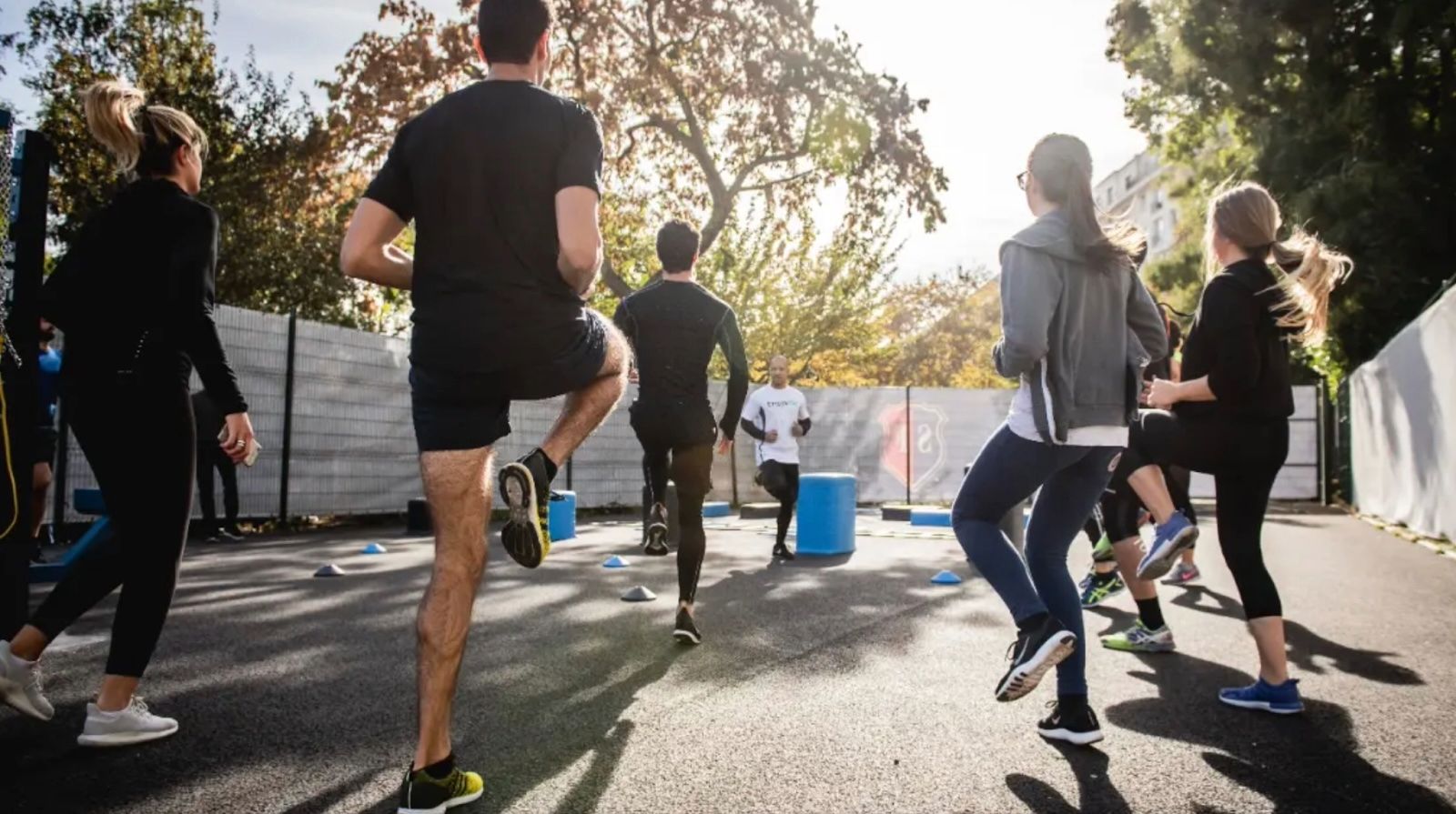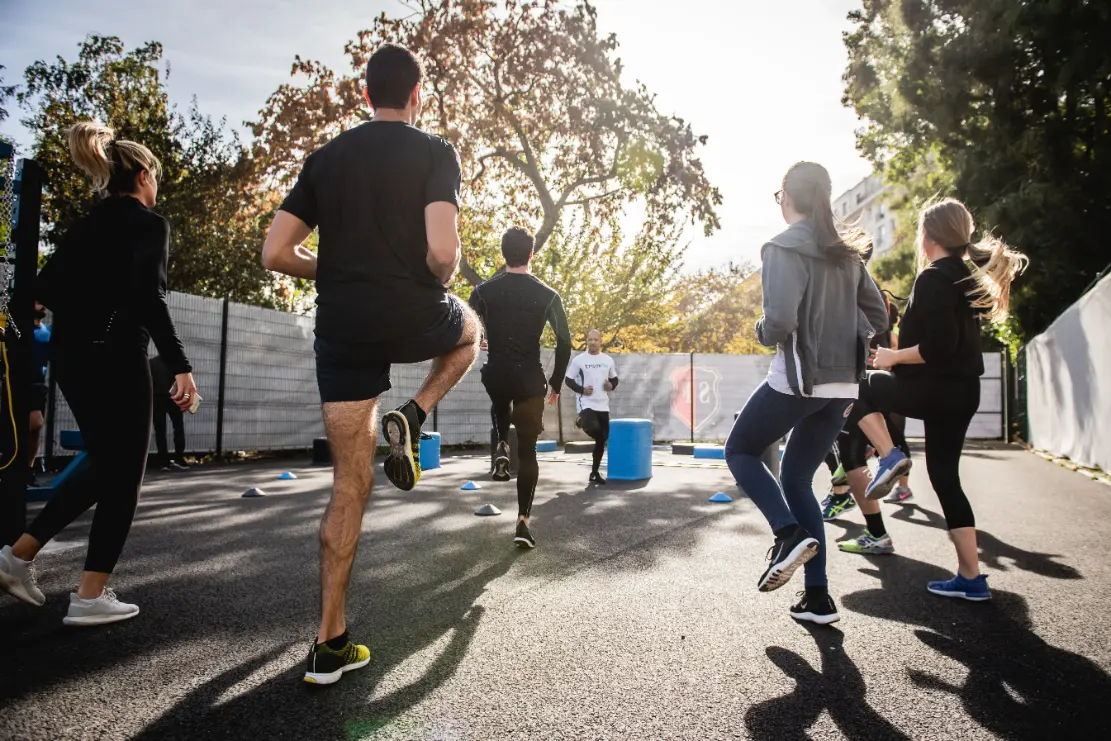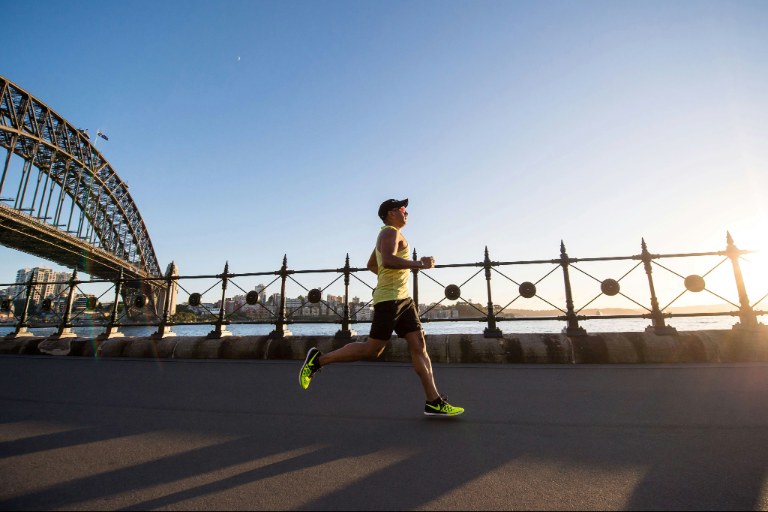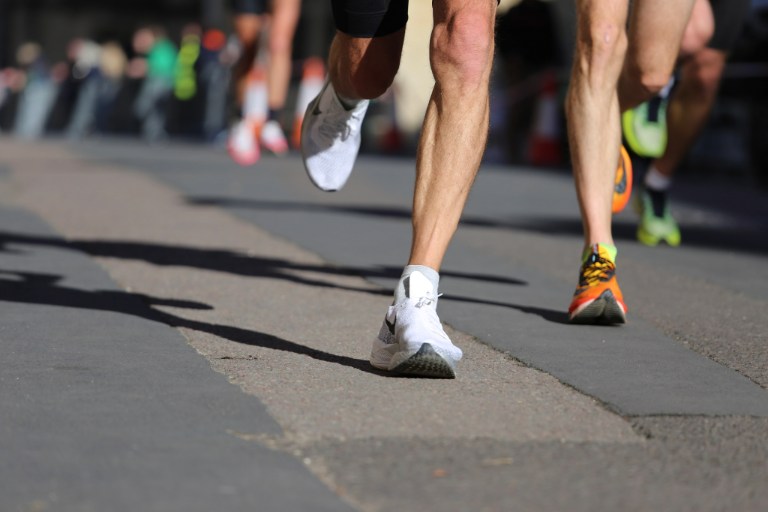How to Run a 30-minute 5K: The Ultimate Guide to Breaking 30 Minutes
Starting your running journey should feel exciting, not overwhelming. Our training plans give you the structure, support, and flexibility you need to go from your first step to running 5k, no matter your starting point.

Running a 5K in 30 minutes is one of the most common goals for beginner and improver runners, and for good reason. Hitting that milestone shows you’ve developed solid endurance, improving speed, and the consistency to train regularly. For many, it marks the shift from casual jogging to purposeful running – you’re no longer just getting out the door, you’re working toward a clear target and proving to yourself what you can achieve.
But let’s be honest: running 30 minutes doesn’t just happen by chance. It takes more than trying to run faster on the day. You’ll need steady training, smart pacing, and the confidence to keep going when the effort starts to bite. The good news? With a sensible plan, the right approach, and a little patience, you can absolutely do it – whether you’re aiming to improve your parkrun time or lining up for your first official race.
In this complete guide, you’ll find everything you need to make your 30-minute goal a reality:
- Exact target paces and splits so you know what to hit every kilometre.
- Fitness benchmarks to check if you’re ready to take it on.
- A proven training plan with the sessions you need to build speed and endurance.
- Race-day tactics to pace yourself smartly and finish strong.
- Expert tips and real success stories from coaches and runners who’ve run 30 minutes themselves.
No more second-guessing. Just clear, practical advice to help you run your fastest 5K yet – and actually enjoy the process along the way.
Ready? Let’s go get that 30!
What Does It Take to Run a 30-minute 5K?

To finish a 5K in 30 minutes, you’ll need to hold an average pace of 9 minutes 39 seconds per mile, or exactly 6 minutes per kilometre. That’s the target – every kilometre needs to come in right around 6:00 to hit the mark.
Put simply, you’ll need to string together 5 consistent kilometres at 6:00 pace.
Are You Ready for a 30-minute 5K?
Before you start targeting a 30-minute 5K, it’s worth checking whether your current fitness is close enough. Jumping in too early can leave you frustrated or risk injury, but these simple tests will give you a good idea if you’re ready to train at 6:00/km pace.
Benchmark Sessions
1. The 3 × 1K Repeats Test
Find a track or measured path and run 3 × 1K with 2–3 minutes of easy jogging or walking in between.
- Aim to hit each kilometre in 5:55–6:00.
- If you can run all three at that pace and finish feeling like you had a bit left in the tank, you’re likely ready to go after 30 minutes.
2. The 2-Mile Time Trial
Another option is a short solo effort.
- Warm up properly, then run 2 miles (around 3.2 km) at a hard but sustainable effort.
- If you can cover the distance in around 19:00–19:20, it’s a good sign you’re close to 30-minute fitness.
These aren’t exhaustive, but they’re quick, practical ways to check if you’re ready to train specifically for 6:00/km, or if you’d benefit from a few more weeks of base building first.
Check Your Weekly Mileage Base
Running at 6:00/km pace becomes much easier if you already have a foundation of regular running. Workouts alone won’t cut it – you need a base to build on.
As a guideline:
- Aim to be comfortable running 15–20 km (9–12 miles per week) for 4–6 weeks before committing to harder sessions.
- If your mileage is lower, start by building gradually with easy runs before adding structured workouts.
A steady base, supported by short strides or gentle pickups, will make the training ahead more effective and reduce your risk of injury.
Key Training Principles
Running a 5K in 30 minutes comes down to building a strong foundation and layering in the right kinds of workouts. You don’t need to train like an elite athlete - consistency, gradual progress, and smart pacing will take you there. Here’s what to focus on
1. Build Mileage Gradually
The first step is to get comfortable running regularly. A steady weekly routine will make 6:00/km pace feel far less daunting.
- Aim for 15–20 km (9–12 miles per week) if you’re just getting started.
- Add distance slowly – a small increase each week is enough.
Keep most runs at an easy, talkable pace so you’re not overworking your body.

2. Include Intervals
Intervals will help you get used to running faster than your goal pace in short bursts. This builds confidence and improves efficiency.
- Try sessions like 6 × 400m at 5:40–5:50/km pace with a walk or jog in between.
- Another option is 3 × 1K at 6:00/km with rests between reps.
One interval workout a week is plenty for most runners aiming for 30 minutes.

3. Add Tempo Runs
Tempo runs help you sustain a steady pace for longer stretches and prepare you to hold rhythm in the race.
- Run 10–20 seconds slower than goal pace (around 6:10–6:20/km).
- Start with 10–15 minutes at this effort and gradually increase toward 20 minutes.
- These runs should feel comfortably hard, not all-out.

4. Don’t Skip the Long Run
Longer runs may feel unnecessary for a 5K, but they build the endurance that makes holding race pace possible.
- Aim for 40–60 minutes at an easy pace once a week.
- The goal is steady time on your feet, not speed.
Over time, this helps you finish stronger and with more control.

5. Strength & Mobility Work
Strength and mobility are key for injury prevention and good form, especially for newer runners.
- Focus on simple exercises like squats, lunges, planks, and bridges.
- Add mobility work for hips, calves, and hamstrings to keep your stride smooth.
- Just 1–2 short sessions per week of 15 minutes can make a big difference.

Pacing & Race-Day Strategy
As you step onto the start line, your plan matters just as much as your fitness - and the right pacing strategy can carry you all the way to a 30-minute breakthrough. Here's how to set it up:
1. Warm Up Properly
A good warm-up helps you settle into pace quickly instead of feeling stiff when the race begins.
- Easy jog: Do 10–15 minutes of gentle running to get your body moving.
- Dynamic stretches: Use simple drills like leg swings, lunges, or high knees to wake up key muscles.
- Strides: Finish with 3–4 short bursts a little quicker than race pace (about 80–90 percent effort).
By the start line, you should feel warm, relaxed, and ready to move smoothly into pace.

2. Start Steady
The first kilometre is often where people lose time by going out too hard.
- Stick to your target of 6:00 per km (9:39 per mile).
- Your opening kilometre should feel comfortable, not like a sprint.
If it feels easy, that’s good – it means you’re on track to finish strong later.

3. Stay Consistent in the Middle
The second and third kilometres are where pacing discipline matters most.
- Focus on keeping a steady stride and controlled breathing.
- Keep your posture upright and your arms relaxed.
- If possible, settle in with other runners moving at your pace – it helps you stay motivated.

4. Finish with Purpose
The last kilometre is where you lock in the result. Tell yourself it’s just one final push.
- With 500 metres to go, start gradually lifting your effort.
- In the last 200–300 metres, give everything you’ve got left.
- Keep your head up, drive your arms, and push through the line strong - every second matters.

Mental Tips for Breaking 30

Running a 30-minute 5K isn’t just about fitness – it’s also about mindset. Your training gets your body ready, but it’s your mental approach that helps you stay consistent and push through when it feels tough. Here are some strategies to build confidence and stay focused from start to finish.
Break the Race into Chunks
Thinking about the whole 5K at once can feel overwhelming. Instead, split it into smaller goals:
- 1K: Find your rhythm and relax into pace.
- 2K: Stay smooth and steady – keep things controlled.
- 3K: This is often the hardest kilometre – remind yourself you’re over halfway.
- 4K: Focus on holding your form and staying strong.
- 5K: Time to give it everything and push through to the finish.
Breaking the race into pieces makes it easier to stay locked in without getting distracted by the full distance.
Use Positive Mantras
When the effort builds, short mantras can help keep you motivated and in control. Examples include:
- "One step at a time"
- "Calm and steady"
- "I’ve got this"
Repeating these in rhythm with your stride can keep your focus sharp and stop negative thoughts from creeping in.
Focus on Breathing
Your breathing is a simple but powerful tool. Aim for a steady rhythm – for example, breathe in for three steps and out for two. Focusing on your breath keeps you calm, helps your body stay relaxed, and prevents you from tightening up when the effort rises.
Visualise the Finish
In the days leading up to your race, take time to picture yourself running well. Imagine hitting your splits, holding form through the middle kilometres, and finishing strong. See yourself crossing the line with the clock showing 30:xx. That mental rehearsal makes it easier to believe – and achieve – on the day.
Nutrition & Gear for a 30-minute 5K

When you’re working toward a 30-minute 5K, the little details can make a big difference. Eating the right foods and wearing the right kit won’t guarantee a PB, but the wrong choices can easily throw you off. The goal is to keep things simple and familiar so nothing distracts you on race day.
The Night Before
Think of dinner as your chance to set yourself up for success.
- Have a carb-based meal like pasta, rice, or potatoes with some lean protein.
- Keep the portion sensible - you want to be fuelled without feeling heavy.
- Stay hydrated during the day, but avoid drinking large amounts right before bed.
Race Morning
On race morning, a light, familiar breakfast is best.
- Stick to foods you know work for you, like a banana, a slice of toast with honey, or a small bowl of cereal.
- Try to eat 2–3 hours before the start, then sip water steadily until it’s time to line up.
- Avoid anything greasy, spicy, or brand new – race day is not the time to experiment.
Gear: Comfort and Familiarity
Having the right gear gives you confidence and prevents unnecessary problems.
- Choose comfortable running shoes that you’ve already worn on training runs.
- Stick to kit you know won’t rub - even small blisters can ruin your day.
- Check the forecast and dress appropriately. Use layers for warming up, then start the race in your regular running gear.
Frequently Asked Questions
Yes! A 30-minute 5K is a big achievement for many beginners and improvers. It shows you’ve built endurance, developed consistent training habits, and are moving well beyond casual jogging.
Is a 30-minute 5K good?
Yes! A 30-minute 5K is a big achievement for many beginners and improvers. It shows you’ve built endurance, developed consistent training habits, and are moving well beyond casual jogging.
How long does it take to train for a 30-minute 5K?
If you’re currently running around 31–34 minutes, you may be able to hit 30 minutes within 6–10 weeks of focused training. If you’re starting from a slower time, it may take a few months of steady progress to get there.
What pace is a 30-minute 5K?
To run 30 minutes, you need to average 9:39 per mile or 6:00 per kilometre.
How many times per week should I run to reach 30 minutes?
Most runners will improve with 3–4 runs per week, mixing easy runs, one interval session, and one longer run. Consistency is more important than high mileage at this stage.
Do I need to do strength training for a 30-minute 5K?
Yes, even at this level, strength work helps. Simple bodyweight exercises like squats, lunges, and planks can improve running form, reduce injury risk, and help you finish stronger.

